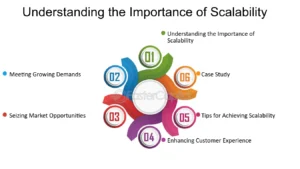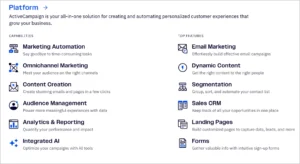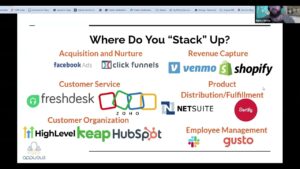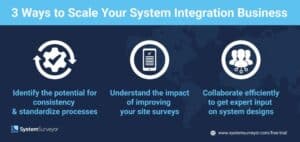Scaling Your Business: Strategies for Sustainable Growth
Scaling a business isn’t just about growing fast—it’s about growing smart. Learn proven business scaling strategies to increase revenue, optimize operations, and enhance productivity.
Introduction: Why Business Scaling Matters
For many entrepreneurs and businesses, scaling is the next logical step after achieving initial success. However, scaling effectively requires strategic planning to handle increased demand without compromising quality or profitability. This article dives into actionable strategies to help businesses grow sustainably while maximizing efficiency and profits.
Key Strategies for Business Scaling
1. Invest in Automation Tools
Scaling your business means finding ways to streamline processes, and automation is key. From CRM systems to project management tools, automation allows you to handle more clients, projects, and tasks with fewer resources.
Example: Tools like HubSpot or Zoho CRM help automate customer interactions, while Asana or Monday.com manage projects effectively.
2. Outsource Non-Essential Tasks
Outsourcing is a cost-effective way to manage growing workloads without the need to hire full-time staff. Identify non-core tasks, such as administrative duties or customer service, that can be outsourced to freelancers or agencies.
Key Tip: Platforms like Upwork and Fiverr offer affordable outsourcing options for various tasks.
3. Focus on Customer Retention
Scaling isn’t just about acquiring new customers; retaining your existing ones is even more valuable. Create loyalty programs, implement CRM systems, and provide excellent customer support to ensure repeat business.
Example: Tools like Drip and ActiveCampaign can help manage email marketing campaigns, customer segmentation, and lead nurturing to improve retention.
4. Optimize Financial Management
Cash flow is a significant challenge for businesses scaling rapidly. Implementing robust financial management tools will help you track spending, manage budgets, and plan for future investments.
Example: Solutions like QuickBooks or Xero provide seamless financial tracking, invoicing, and reporting to keep finances in check.
5. Implement Scalable Marketing Tactics
Marketing plays a crucial role in scaling. Focus on digital marketing strategies that can grow with your business, such as content marketing, SEO, and social media advertising.
Key Tip: Use tools like SEMrush or Ubersuggest for SEO optimization and Hootsuite or Buffer for social media management.
Conclusion: Key Takeaways for Scaling
Scaling your business is a challenge, but with the right strategies in place—automation, outsourcing, financial management, and retention—you can grow sustainably. The key is to build scalable systems that grow with your business.
FAQs Section
1. What is the difference between growing and scaling a business?
- Growing means increasing revenue, while scaling focuses on increasing revenue without a proportional increase in costs or resources.
2. How can automation help in scaling a business?
- Automation streamlines repetitive tasks, allowing businesses to handle larger workloads with fewer resources, enhancing efficiency.
3. What are the best tools for managing business finances during scaling?
- QuickBooks and Xero are great tools for tracking expenses, invoicing, and generating financial reports.
4. Why is customer retention important in business scaling?
- Retaining existing customers is more cost-effective than acquiring new ones. Loyal customers provide repeat business and can refer new customers.
5. What should businesses prioritize first when scaling?
- Businesses should first focus on optimizing internal processes, automating repetitive tasks, and ensuring financial stability before aggressively seeking new customers.
Top Tools to Simplify and Scale Your Business
- HubSpot
- A powerful CRM and marketing automation tool to streamline customer interactions, email marketing, and sales funnels.
- Monday.com
- A flexible project management platform that helps teams manage and track tasks, workflows, and collaboration.
- QuickBooks
- An intuitive accounting software that allows businesses to manage invoices, track expenses, and monitor cash flow.
- Drip
- An ecommerce-focused CRM designed to help businesses engage with customers through personalized email campaigns and workflows.
- Upwork
- A popular outsourcing platform connecting businesses with freelancers for everything from administrative tasks to creative services.
Keywords: business scaling strategies, scalable marketing tactics, financial management tools, customer retention, automation tools, CRM systems







